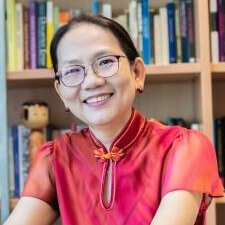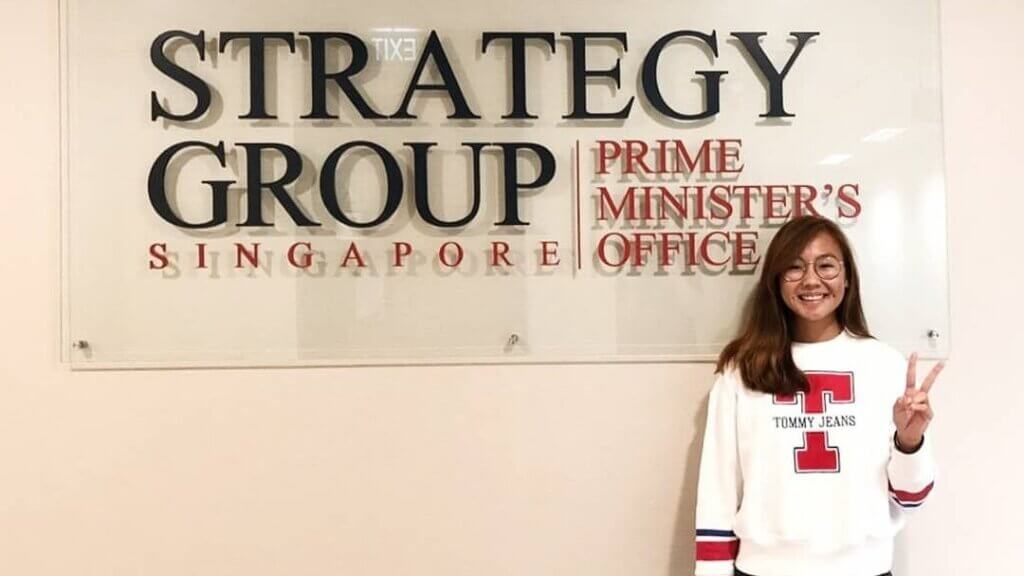
We need a new generation of leaders to shape the world in which we live. This requires an education that goes beyond traditional book smarts and niche specialisations, but one that nurtures a holistic, multidisciplinary approach to solving challenges such as those faced by today’s fast-changing, global economy.
It is no surprise then that Politics, Law and Economics (PLE) majors are in high demand, based on the diverse skill-sets acquired during their time at university. The innovative PLE major introduced within the SMU School of Social Sciences (SOSS) Bachelor of Social Science programme, for example, aims to prepare students to become future leaders and thinkers with a deep understanding of global political and economic transformations, and the legal frameworks and contexts within which such changes take place.
“PLE competencies are useful for solving all kinds of real-life problems,” says Tan Sor Hoon, SOSS Professor of Philosophy and Academic Director of the Politics-Law-Economics major.
“Their interdisciplinary training equips them with the flexibility of mind and sensitivity to see different perspectives, work with diverse parties and to find optimal solutions.”
Thanks to the interdisciplinary nature of the major, graduates are well-equipped with the knowledge and skills to handle multifaceted jobs in fields ranging from public service, non-government organisations to private industry. They can leverage these competencies to thrive in leadership positions across a range of sectors, both public and private, from various ministries, statutory boards, to MNCs as well as SMEs, social enterprises and voluntary organisations, as well as media companies such as Bloomberg.
 Tan Sor Hoon, SMU SOSS Professor of Philosophy and Academic Director, PLE
Tan Sor Hoon, SMU SOSS Professor of Philosophy and Academic Director, PLE
Boundless possibilities
One such embodiment of the PLE major’s versatility is Loo Bin Hui, a Naval Officer in the Republic of Singapore Navy who is serving as the Assistant Navigation Officer onboard RSS Tenacious. Bin Hui was in the pioneering PLE cohort when he matriculated in 2016. Aspiring to take command of a naval department, unit and even a Republic of Singapore warship someday, he attributes his ability to address matters of international diplomacy to the firm foundation of legal systems and international law built up during PLE.
 Loo Bin Hui
Loo Bin Hui“The Navy is often found on the frontlines, safeguarding our nation’s maritime interests. As guardians of the sea, we are committed to prudently navigate this complex geostrategic terrain while upholding a rules-based international order. Such is the challenge in safeguarding our sovereignty both in fact and in form,” explains Bin Hui, who assists in planning navigation routes for local and overseas deployments.
“The programme allows me to navigate this realm and has impressed upon me the importance of precedence and consistency in our actions. The complementary political and economic perspectives help us keep abreast of the externalities and interdependencies baked into every decision, to better optimise our actions for both the short and the long run.”
Another PLE major whose job is at the forefront of evolving landscapes is Chelsea Cheng, who works in the Intelligence and Futures unit of the Singapore Ministry of Trade and Industry (MTI). She monitors emerging and long-term trends to identify developments that might present opportunities and risks to Singapore’s economy and develop products that support strategy development in the economic domain.
While Chelsea had always aspired to be in the public service, she was never really sure about her career path until she participated in class discussions and case studies on public policy and the public sector while studying the PLE major. Professors were always willing to share about their professional experiences, providing deeper insights into the type of jobs and nature of work within the public service.
“I gradually developed an interest in the area of economic planning and industry development, which is why I eventually decided to join the MTI,” says Chelsea.
“It was also extremely helpful that our professors are always proactive in inviting guest speakers from different fields, including public officers and academics specialising in public policy, to share more about their work during our classes.”
Indeed, courses such as Politics of South East Asia that provide factual knowledge on neighbouring countries are highly relevant for graduates in a wide range of careers, such as those who are working for a business expanding its markets or manufacturing bases overseas, or someone employed by the Ministry of Foreign Affairs, who might be assigned to embassies in South East Asian nations, elaborates Prof Tan.
Besides imparting valuable factual knowledge, the PLE programme grooms graduates to understand, analyse and evaluate the cultures, strengths and weaknesses of other countries. Such competencies are transferable across a wide range of professions and sectors. According to Prof Tan, PLE graduates have taken jobs in consultancies and other businesses with a global orientation.
Through a different lens
In the current era of Covid-19, empathy has certainly emerged as a core value, whereby global citizens are driven to look outside themselves and take action to make lives a little less isolated. The study of social sciences, in a similar fashion, invites scholars to step outside their comfort zones and consider ways to address issues that affect the greater community.
Bin Hui recalls having always been fascinated by the work of the Ministry of Foreign Affairs, and would read books and posts by “foreign policy virtuosos” like its Former Permanent Secretary Bilahari Kausikan and Ambassador-at-Large Professor Tommy Koh.
“It was through SMU-X modules that I developed a greater exposure and empathy to issues like poverty, homelessness, intersectionality and intergenerational conflict,” shares Bin Hui.
“I am well aware that such phrases are commonly adopted by many a social justice warrior, but SMU has equipped me with a toolkit of practical competencies in research, fieldwork and policy-making that allows me to take action and remedy issues at hand.”
 Chelsea Cheng
Chelsea Cheng
Likewise, Chelsea had always read up on global affairs, public policy, and industry development since she was a junior college student. As such, embarking upon the PLE major came about as a natural progression, as she viewed it as a holistic major that would enable her to explore various fields she is passionate about in an interdisciplinary manner.
Beyond being able to mix and match modules from various faculties, she believes the PLE major trains students to analyse specific issues using different frameworks, concepts, and theories taught in the three disciplines.
“The key value proposition of the PLE major is that it develops interdisciplinary thinkers.”
“The key value proposition of the PLE major is that it develops interdisciplinary thinkers,” adds Chelsea.
“While most people are able to think in a multidisciplinary manner — such as recognising both an economic angle and legal angle to a particular issue, interdisciplinary thinking requires one to be able to evaluate these different perspectives as a whole, challenge assumptions, and identify cross-cutting implications.
I think this has certainly served me well in my current line of work where I’m assessing emerging trends on a daily basis and trying to understand how it impacts our operating environment and the economy.”